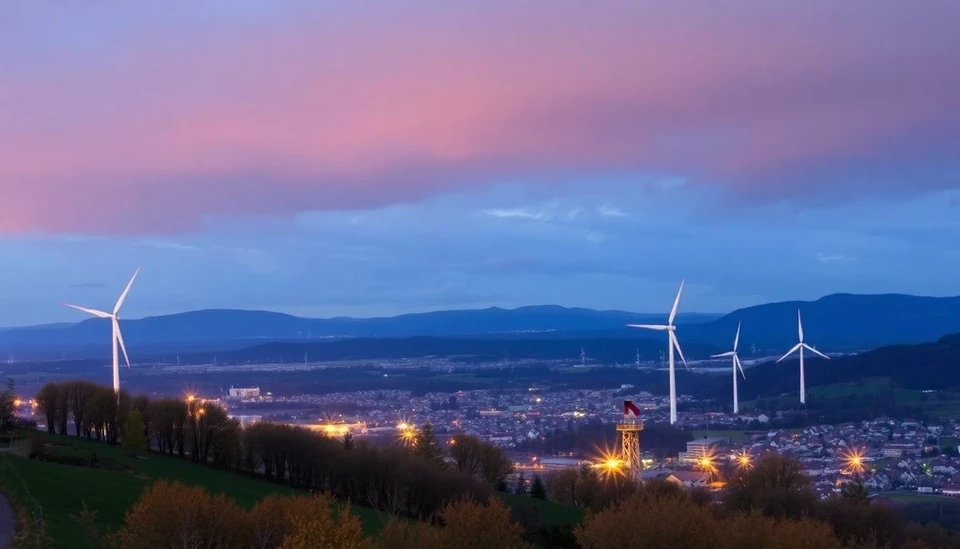
In a striking development reflecting the broader challenges within Europe’s energy landscape, Germany is witnessing a significant increase in power prices as the country pivots its energy generation from renewable sources to traditional fuels such as coal and oil. This shift comes in response to heightened demand for energy amidst adverse weather conditions and ongoing supply constraints.
As Germany grapples with the fallout from its increasingly volatile energy market, power prices surged early this week, breaking records for the season. The escalating reliance on fossil fuels has been attributed to both a shortage of renewable energy generation and a strategic pivot to ensure a stable energy supply as winter approaches.
Specifically, the country faces a drop in wind energy due to calmer weather patterns, which has exacerbated reliance on backup power generation. This resurgence in fossil fuel consumption stands in direct contrast to Germany's long-term goals of reducing carbon emissions and increasing reliance on sustainable energy sources. However, the immediate needs of consumers and businesses for a reliable energy supply have prompted this regression to oil and coal.
Energy market analysts have expressed concern regarding the implications of this shift. The over-dependence on fossil fuels could lead to increased carbon emissions, further complicating Germany's emissions reduction strategies and commitment to environmental sustainability. The recent uptick in power prices also raises questions about energy security and the economic impacts on households, particularly during a time of rising living costs across the board.
Moreover, the current scenario highlights the delicate balance Germany must maintain between energy independence and environmental responsibility. The German government has invested heavily in green technologies, but the reliance on more traditional energy sources under current circumstances presents significant challenges. As energy prices soar, the government may face greater pressure to manage public sentiment while continuing to advance its renewable energy agenda.
The current situation in Germany also mirrors wider European energy challenges, where many countries are adjusting their energy strategies in response to fluctuating weather conditions, geopolitical tensions, and global market dynamics. With the winter months approaching, there is an urgent need for energy policy recalibrations to ensure that supply remains stable and prices do not escalate further.
In conclusion, as Germany transitions back to more conventional energy sources amidst a challenging energy landscape, the implications for the economy, energy policy, and environmental goals will need to be carefully navigated. Stakeholders will be watching closely to see how these developments unfold and what measures can be implemented to stabilize the market while honoring commitments to sustainable energy practices.
#Germany #EnergyPrices #PowerGeneration #RenewableEnergy #Coal #Oil #EnergyCrisis #ClimateChange #EnergyPolicy #Sustainability
Author: Victoria Adams




